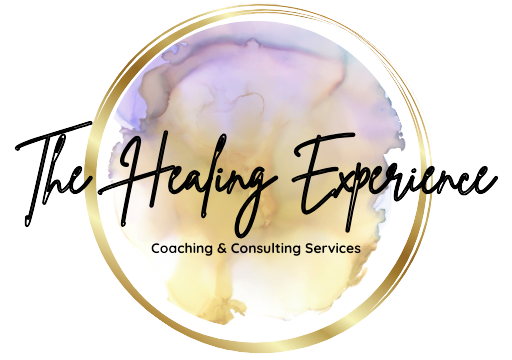
Have you ever wondered if your overeating, emotional eating, and constant struggles with weight gain might be connected to something deeper than just a lack of willpower? If you find yourself reaching for comfort food in stressful moments or eating when you’re not hungry, it may not be just about food—it could be linked to your childhood experiences. But no one really talks about this aspect of how poor coping mechanisms due to adverse childhood expereinces many be contributing to your overeating, overindulging, etc.
As a licensed psychotherapist specializing in understanding how past experiences shape present behaviors, I often see how adverse childhood experiences (ACEs) influence eating habits. These experiences—such as emotional neglect, chaotic home environments, and unhealthy family patterns—can significantly impact your relationship with food. Let’s explore how these childhood adversities can lead to overeating and how understanding these connections can help you on your path to better health.
1. Emotional Neglect: Using Food as Comfort
Many individuals who experienced emotional neglect during childhood turn to food for comfort. In cases where emotional needs were unmet by caregivers, food can become a substitute for the affection, attention, or validation that was missing. Food can be a safety- like any other addiction; food can help you escape from reality, stress, distress, adversity, etc. But in return, this pattern often continues into adulthood, where emotional eating becomes a way to cope with feelings of loneliness, inadequacy, or sadness.
From a mental health perspective, this behavior is not merely about hunger; it’s about trying to soothe unmet emotional needs. The challenge lies in addressing these underlying emotional issues rather than just focusing on changing eating habits. Therapy can help uncover these emotional wounds and provide tools to manage and heal them effectively.
2. Living in Chaos: Finding Control Through Food
A chaotic or unpredictable home environment can create a constant sense of anxiety and insecurity. For many, food becomes a means of exerting control and providing a sense of stability when everything else feels unstable. This coping mechanism might begin in childhood but can continue into adulthood, where overeating becomes a way to manage stress or regain a sense of control.
From a psychotherapeutic standpoint, it’s crucial to address the root causes of this need for control. Therapy can help individuals develop healthier coping mechanisms and address the underlying anxiety that drives their eating behaviors. By learning to manage stress in ways that don’t involve food, individuals can begin to break the cycle of emotional eating.
3. Unhealthy Family Patterns: Learning Bad Eating Habits
Family dynamics play a significant role in shaping eating habits. If food was used as a reward or a means to manage emotions, these patterns can become ingrained. For example, if your family celebrated with large meals or used food to soothe emotional distress, these habits may become your default way of dealing with similar situations.
From a mental health perspective, addressing these learned behaviors involves exploring the connections between past family dynamics and current eating patterns. Therapy can help individuals recognize and challenge these ingrained habits, replacing them with healthier ways of managing emotions and stress.
Breaking the Cycle: Steps Toward Healing
Recognizing the link between childhood adversity and overeating is a significant first step toward healing. As a psychotherapist, here are some steps I recommend to help individuals build a healthier relationship with food and address underlying emotional issues:
- Acknowledge and Address Emotional Triggers: Begin by identifying when and why you turn to food. Emotional eating often stems from deeper issues, so understanding these triggers can help you find more effective ways to cope.
- Seek Professional Support: Working with a therapist/medical provider can provide you with the tools and insights needed to address both emotional and behavioral patterns. Therapy offers a space to process past trauma, learn new coping strategies, and develop a healthier relationship with food.
- Practice Mindful Eating: Mindful eating involves paying attention to your hunger cues and eating with awareness. This practice can help you differentiate between physical hunger and emotional eating, making it easier to manage your eating habits.
- Check In With “Self” Daily: Please remember to give yourself grace- It’s easy to be hard on yourself when things don’t go as planned. Giving yourself grace means recognizing that mistakes and setbacks are a natural part of life. It allows you to approach challenges with a more compassionate mindset, reducing feelings of guilt or inadequacy. Continue to work on your goals “one moment at a time.” Whatever those goals- ensure that they align with your best “self.”
- Tune Out the Inner Critic in Your Head & The Criticism of Others– One of the biggest barriers to personal growth and self-compassion is the harsh inner critic that constantly evaluates and judges your actions. This inner voice can undermine your confidence, increase stress, and hinder your overall well-being. If you find that you are criticize by others and they may trigger you in some way, remove yourself from them! This is toxic patterned behavior, and it is not worth your sanity anymore! Chose you!
If you’ve struggled with overeating and weight gain, maybe it is time to look beyond the surface and see what are some of the unresolved factors that may be attributing to you weight management stressors. understanding the connection between childhood adversity and eating habits can be enlightening. It’s not just about willpower; it’s about addressing the emotional and psychological roots of these behaviors. By working through these issues with a licensed therapist, you can begin to heal from past traumas and develop healthier coping strategies. Remember, understanding the issues sometimes cause for us to go deeper than surface, and when we do- that’s when we can start to make the necessary changes in our lives.
Until next time, stay well and take care,
Zelina Chinwoh, MSW, LCSW
For more related content like this, be sure to listen to “The Dear Unapologetically Me” podcast on Apple or Spotify. Also, check out The Healing Experience Now Website with all exclusive content and our YouTube page at The Healing Experience Now.
Disclaimer: This article is intended for educational purposes only. The information provided is not a substitute for professional advice, diagnosis, or treatment. Always seek the guidance of a qualified healthcare provider or mental health professional with any questions you may have regarding your mental health or well-being.



